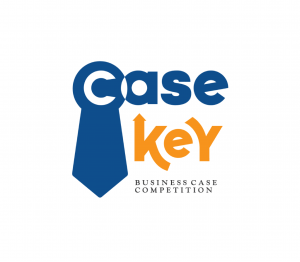Business Case Competition is an annual event that brings together interdisciplinary teams of students and professionals from multiple universities, academic programs, and consulting companies to solve the most challenging problems of industry or particular companies today.
A business case competition is an academic contest for business school students. These competitions originated in the United States, but are now held all over the world. To compete, students typically break into teams of four people.
The teams then read a business case and provide a solution for the problem or situation presented in the case. This solution is typically presented to judges in the form of verbal or written analysis. In some cases, the solution may need to be defended. The team with the best solution wins the competition.
What is the business case?
How it works
Call for applications
Call for individuals, coaches, and mentors are open.
Preliminary Trainings
Participants will learn about case competition and will get to know selected coaches
Matching and Coaching
Individuals and coaches will be matched, and up to 15 teams (4-6 members) will be generated
Case announcement
The business cases will be provided to the teams.
Submission of the solution
Teams will have 72 hours to work on the solution
Review of the solutions
Solutions will be reviewed by a professional jury
Notification
Top teams will be notified and invited to the competition
Competition
Teams will pitch their solutions in front of the jury and case owner
Motives to Participate
Student (Participant)
You can meet link-minded people, solve real-life business problems, get an opportunity to be hired by the top company, acquire new skills and test your knowledge.
University
You can improve the practical knowledge of your lecturers and students, foster collaboration with the best representatives of the private sector, and network with other universities.
Corporate
Companies are looking for people with problem-solving skills to combat the challenges that they might face, participating in case competitions will give you access to top talents
When you participate in a case competition, you get the opportunity to learn in a high-pressure situation involving a real-world scenario. You can learn from students on your team and students on other teams. Some case competitions also provide verbal or written evaluations of your analysis and solution from the competition judges so that you have feedback on your performance and decision-making skills.
Business case competitions also provide other perks, like the opportunity to network with executives and other people in your field as well as the chance to earn bragging rights and prize winnings, which are typically in the form of money. Some prizes are worth thousands of dollars.
Some Statistics
30%
of the competition’s winners have successfully launched new ventures
23.4%
of all US Top 100 schools require participation in at least one case competition during the MBA program of study
37.3%
of students improved their skills from being engaged in case study competition
31.1%
of students gained Business contacts or have been recruited for a job from being engaged in case study competition
Rules and Regulations
Each case competition will have separate terms, however, general rules and regulations can be found below
Guidebook
The purpose of this guide is to help teams, coaches, and judges prepare for the competition.
Check out our competitions

Case Competition 2022
The CaseKey 2022 will be even bigger and more interesting than the 2021 competition. It will attract around 100 students from 10+ universities, 15+ coaches, and over 25 businesses from Armenia.

Case Competition 2021
The cycle is organized within the “Future Today. Empowering women, youth, and children for deepening democracy in Armenia” UNDP Kolba Lab project funded by the European Union.
